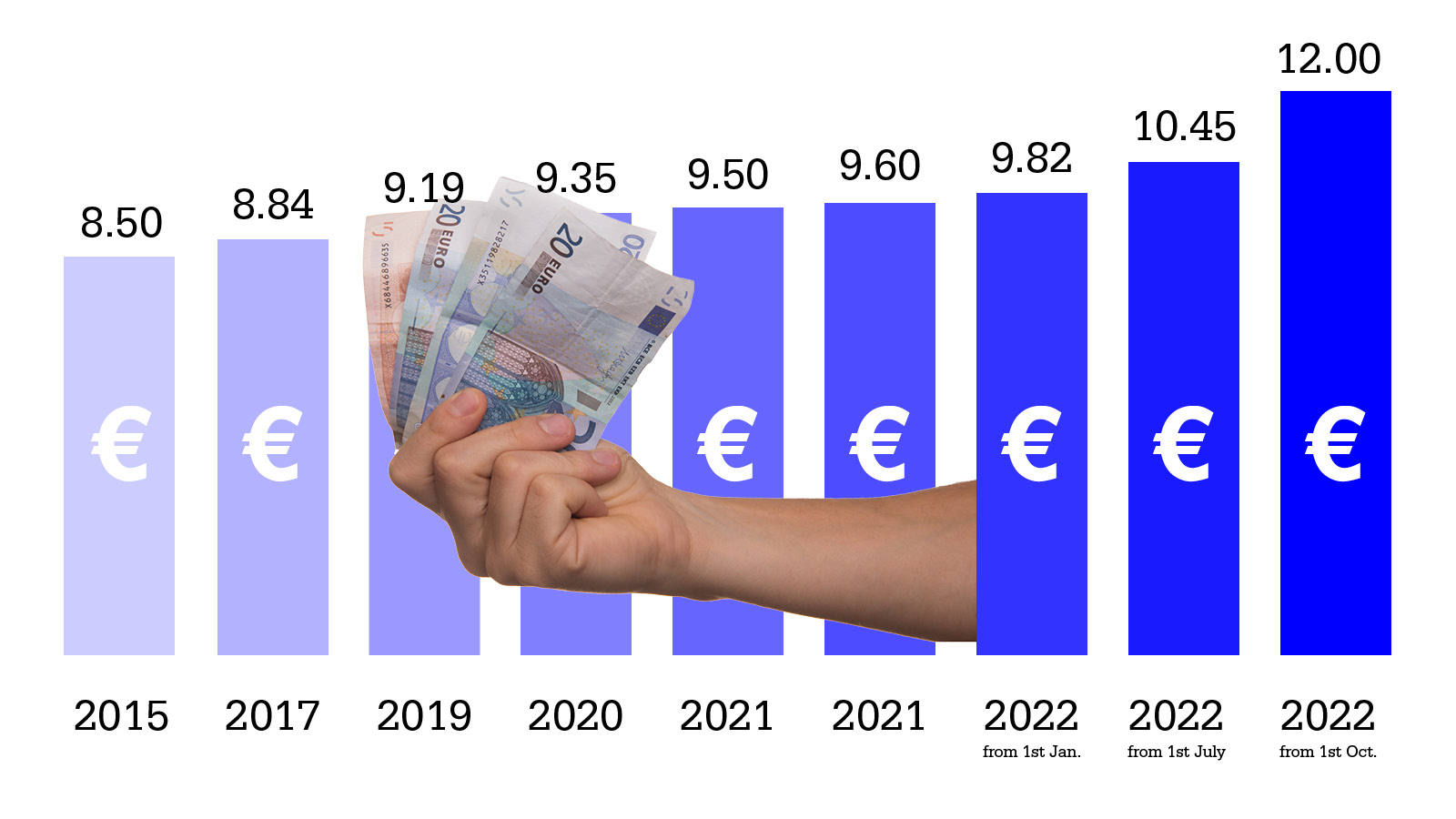Since 2008, Equal Pay Day has been used in Germany to draw attention to the unequal pay of women and men. The date marks the day in the year on which women receive the wage that men have already achieved on the 31st of December of the previous year. For Nuremberg, this day falls on the 28th of February in 2021, for Fürth on the 25th of February. Accordingly, the wage gap between men and women in Nuremberg is 16% (15.2% in Fürth). In recent years this wage gap has slowly but steadily narrowed in both cities.
The structure of the labour market largely explains the wage gap. For example, wages in occupations and sectors differ according to qualifications and whether managerial tasks are performed. The professions in which women predominantly work are still paid less than male-dominated occupations. Report M516 of the Amt für Stadtforschung und Statistik für Nürnberg und Fürth presents the 26 most common occupations in Nuremberg and their primary subgroups. The report shows, for example, that women are indeed strongly represented in the field of business management and organisation. However, well-paid jobs in business organisation and strategy are mainly occupied by men, whereas women occupy the less well-paid areas of secretarial and clerical work.
The proportion of women is particularly high in care and education occupations but low in very well-paid areas of IT and technical development. But even within the professions, the salaries of men and women differ. Jobs in tourism, the hotel industry and gastronomy are an exception. It is clear, in this case, that women are less likely to take on management positions or are employed in jobs with a lower level of requirements. However, the aspects mentioned do not fully explain the differences in earnings between men and women. There remains an unexplained part of the “gender pay gap, ” which points to unequal pay for men and women despite equal qualifications and jobs. You can download the “Gender Pay Gap” report here; https://www.nuernberg.de/internet/statistik/sus_2020_2024.html.
The Equal Opportunities Office of the City of Nuremberg is working to reduce the structural hurdles in the city administration outlined in the statistics report. To this end, concrete measures are being taken on leadership with reduced working hours and on the reconciliation of private life and work. In addition, the City of Nuremberg has been offering mentoring programmes for women interested in taking on leadership positions for several years. The Equal Opportunities Office is also committed to reducing the gender pay gap.
Methodological notes
The basis for calculating the nationwide Equal Pay Day is the earnings structure survey of the Federal Statistical Office. As this data is not available at district level, the calculation is based on data from the employment statistics of the Federal Employment Agency. There, the median wages of full-time employees subject to social security contributions in the core group, i.e. all employees subject to social security contributions minus employment subject to a special (statutory) remuneration regulation for training, youth welfare, vocational promotion, activities in sheltered workshops or voluntary services, are also reported at the district level. Part-time employees, freelancers and the self-employed are not included.
The calculation is based on the last available data as of the 31st of December 2019. On this data basis, the wage gap that arises in 2020 will not close until 2021. Accordingly, Equal Pay Day for 2020/2021 is calculated as follows: wage gap in per cent times 365 days = 58 full days in Nuremberg (Fürth 55 days). Calculated from the 1st of January, 2021, this results in the 28th of February 2021 for Nuremberg and the 25th of February 2021 for Fürth.













